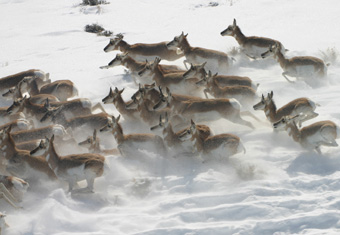

Abstract
Climate change is exacerbating the negative impacts of habitat fragmentation on the ecological integrity of landscapes. Conservationists have come to view ecological connectivity as a potentially powerful climate-change adaptation strategy, one that is being promulgated across the Western US, and in site-specific management efforts throughout the world, through a suite of new wildlife policies such as wildlife corridors and assisted migration. While connectivity conservation presents enormous opportunities for climate-change adaptation, the serious implications of wildlife-disease transmission have yet to be addressed. This research attempts to fill a critical gap in understanding potential effects of connectivity-enhancing strategies on wildlife diseases in one of the most wildlife-rich areas in North America by providing a conceptual framework for understanding the relationships between connectivity and disease dynamics. I will test this framework using host/disease systems focal to climate-change adaptation efforts in the US Northern Rockies. Equally importantly, this research will develop guidelines for incorporating disease considerations into a decision support system for connectivity planning—one that will be used in the implementation of the Western Governors’ Association Wildlife Corridor Initiative. This research will be conducted in collaboration with the Center for Infectious Disease Dynamics at Pennsylvania State University, Princeton University and the Consortium for Conservation Medicine.
